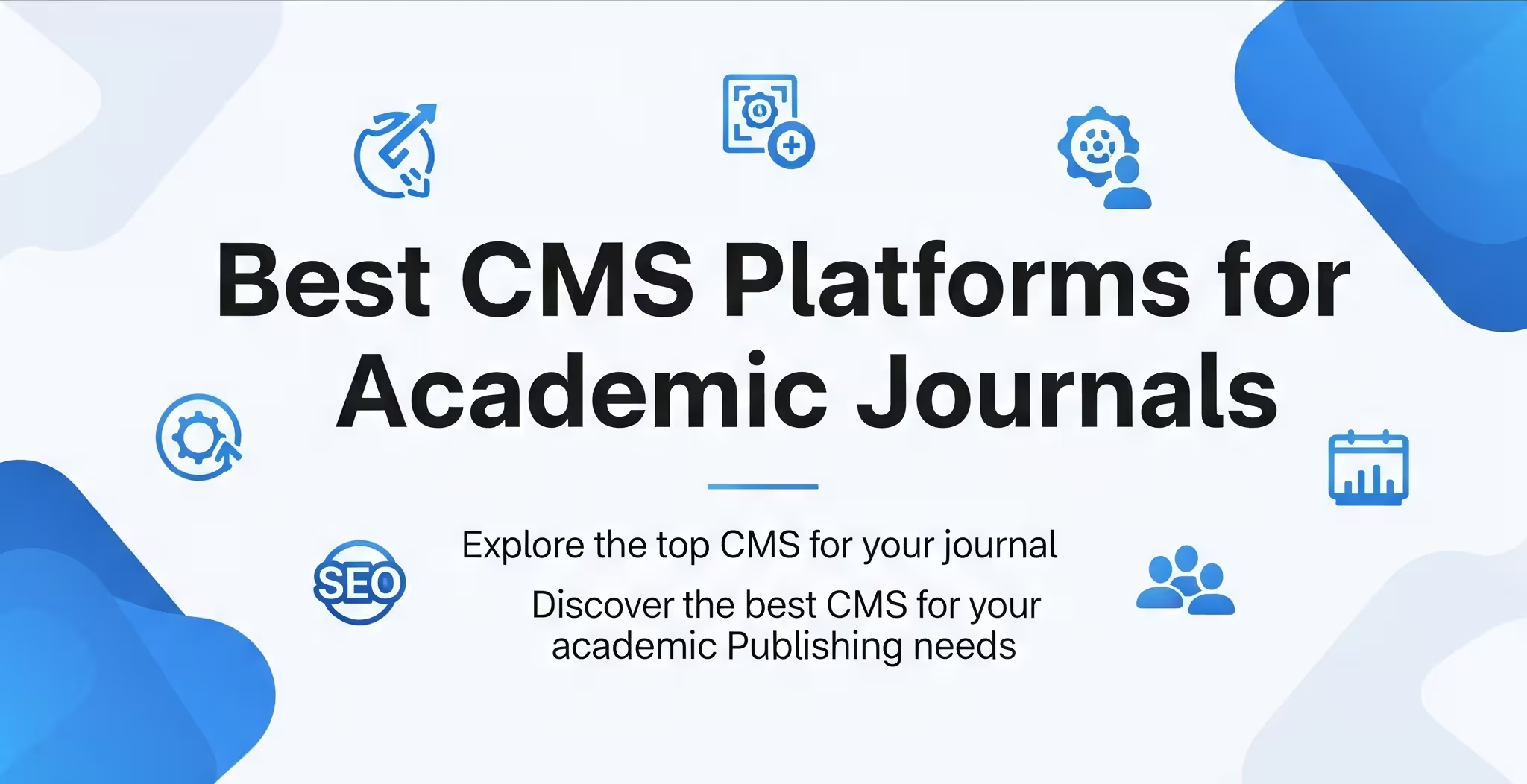Best CMS Platforms for Academic Journals
Running an academic journal involves complex workflows — from manuscript submission to peer review, editorial decisions, and final publication. To manage these effectively, you need a content management system (CMS) designed specifically for academic journals.
With many CMS platforms for academic journals available, how do you pick the best fit? This guide dives into top journal management system CMS solutions that excel in academic publishing, helping you find the right tool to simplify publishing and boost your journal’s impact.
What to Look for in a Journal CMS
Academic journals require features beyond simple content posting, such as:
- Smooth manuscript submission system and review workflows
- Editorial and peer reviewer management
- Integration with academic standards like DOI, ORCID, and CrossRef
- Support for open access journal CMS or subscription models
- Scalability for multiple journals and languages
A specialized academic publishing CMS tailored for these needs ensures efficient operations and better user experience.
📚 Open Journal Systems (OJS)
OJS, developed by the Public Knowledge Project, is one of the most widely used journal management systems globally. It supports everything from submission to publishing, and it’s completely open source.
Best for: Peer-reviewed journals and institutions
Key Features:
- Full editorial management (from submission to publication)
- Built-in tools for indexing, DOI registration, and metadata
- Customizable themes and plugins
- Supports multilingual journals
Why choose OJS?
It’s ideal for institutions, universities, and independent publishers. However, because it has so many features, setting it up and maintaining it can be tricky without expert help. That’s where Amsotics, one of the top OJS implementation providers in India, steps in.
Janeway
Janeway is an open-source journal publishing platform developed by the Birkbeck Centre for Technology and Publishing. It offers a clean interface and automation for many aspects of publishing.
Best for: Journals seeking a modern, API-driven platform
Key Features:
- Easy submission and editorial management
- Integration with scholarly publishing standards
- XML and PDF publishing
- API-first architecture for custom integrations
Ambra
Ambra is the publishing platform developed by PLOS (Public Library of Science) and is built for scalability. It’s open-source and handles high volumes of submissions and traffic smoothly.
Key Features:
- High-performance backend
- Author and reviewer dashboards
- Custom workflow configurations
- Great for large journals with technical teams
Downside: Ambra requires more advanced technical knowledge, so it’s best suited for publishers with IT resources or external partners like Amsotics to assist with deployment.
Why Amsotics is the Best Journal Software Services Provider in India
Choosing the right CMS is only half the battle. Configuring it, customizing it for your journal’s specific needs, ensuring it meets global publishing standards, and providing ongoing support—this is where experience truly matters.
Amsotics specializes in providing end-to-end solutions for academic journals. From OJS installation and customization to full journal website design and integration with DOI and indexing platforms, Amsotics helps publishers streamline their workflow and improve visibility.
Amsotics offers:
- Custom OJS setup and theme development
- Janeway and other CMS installations
- Secure hosting and regular updates
- Indexing and DOI integration
- Technical support and training for editorial teams




